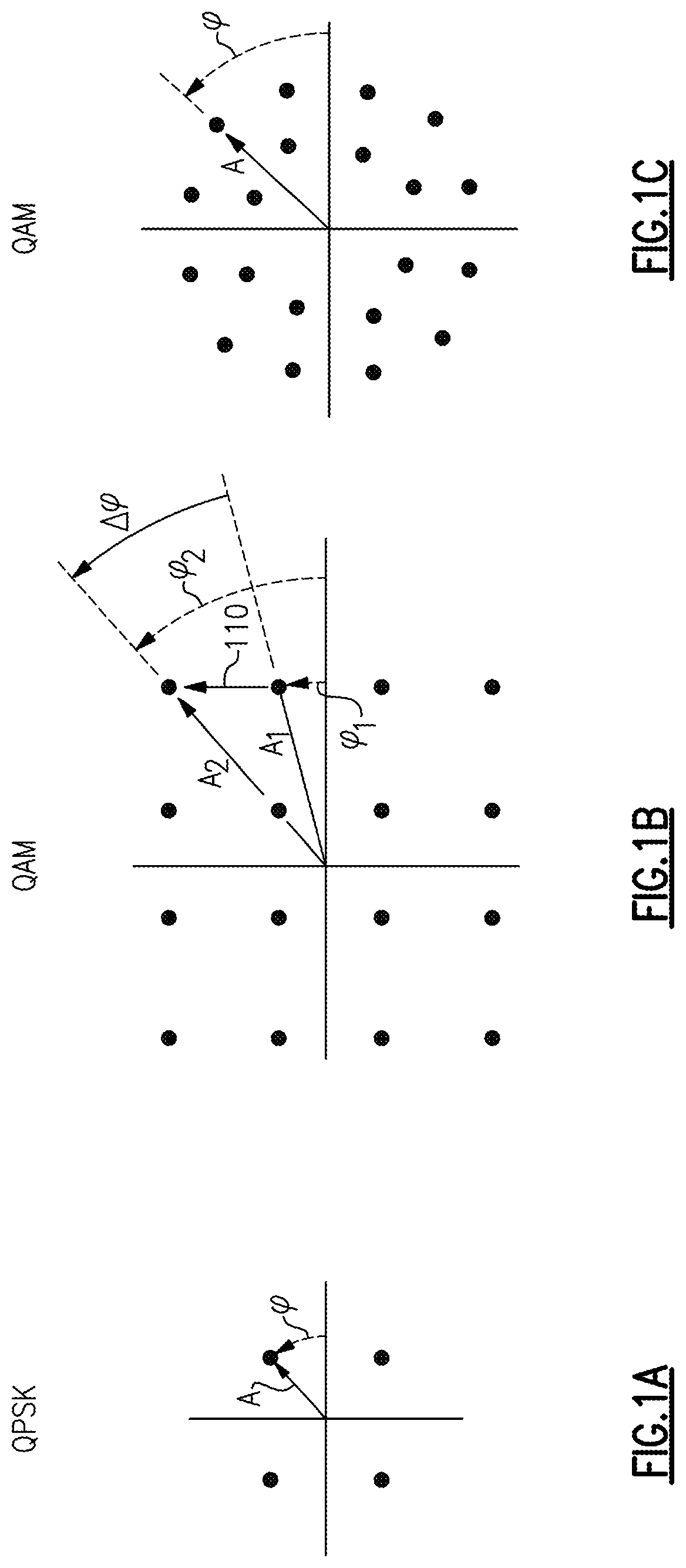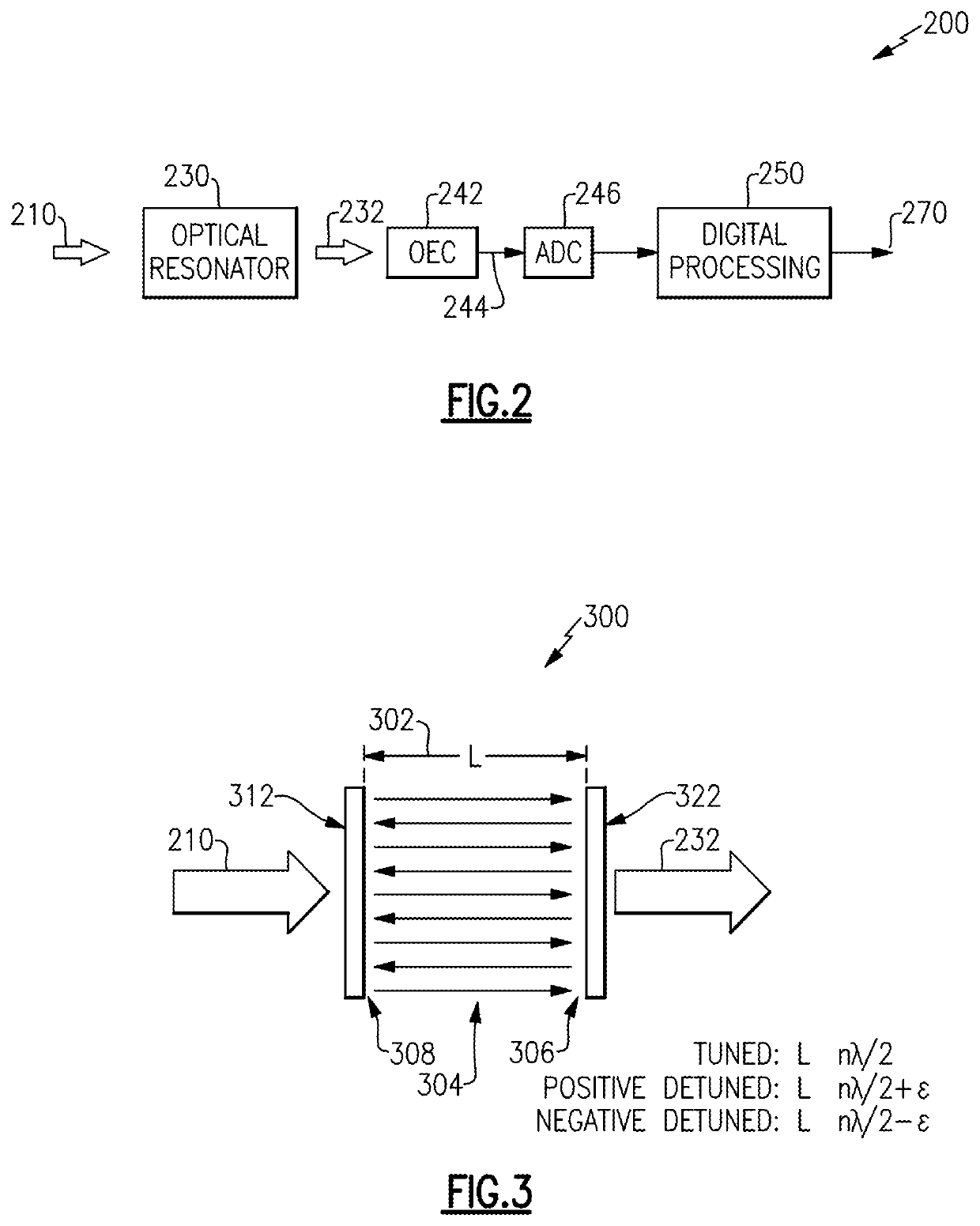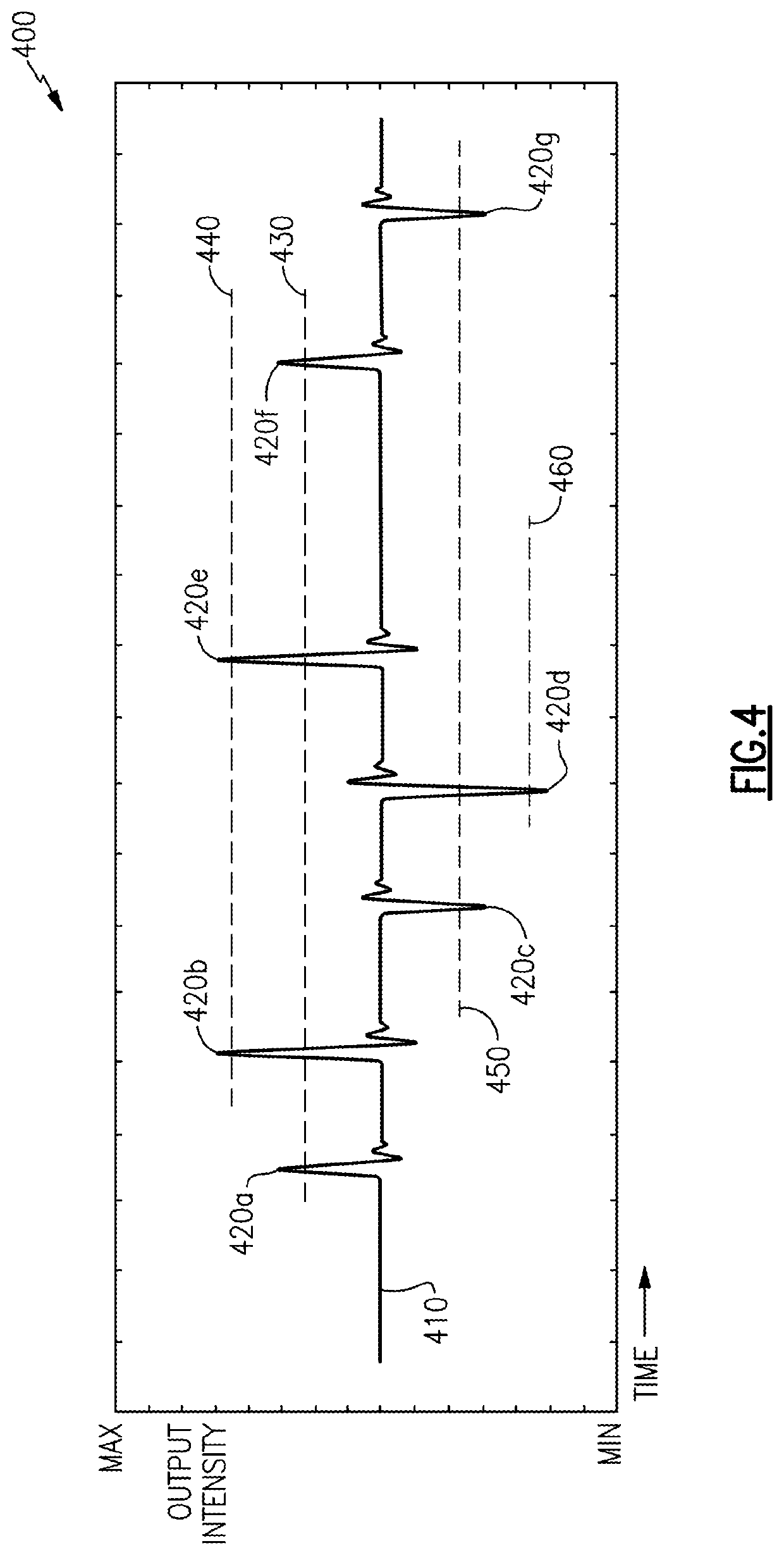Demodulation of phase modulated signals using threshold detection
a phase modulation and threshold detection technology, applied in the field of demodulation of phase modulated signals using threshold detection, can solve the problem that the receiver capable of demodulating phase modulation can be highly complex
- Summary
- Abstract
- Description
- Claims
- Application Information
AI Technical Summary
Benefits of technology
Problems solved by technology
Method used
Image
Examples
Embodiment Construction
Aspects and examples described herein provide systems and methods for demodulation of phase encoded optical signals. In particular, certain examples of the system include a receiver having an optical resonator, such as a Fabry-Perot filter / resonator, micro-ring, or other resonator, for converting phase encoded optical signals into one or more intensity encoded optical signals. The intensity encoded optical signals may be easily converted to electrical signals (e.g., by an opto-electrical converter, such as a photodiode), and processed to determine phase variations in the received optical signal, at lower cost and complexity of the receiving system than conventional approaches.
Aspects and examples described herein include a pulse detector, such as a threshold detector, to process the electrical signal to detect pulses (e.g., transients, disturbances) caused by phase transitions in the received optical signal. Detecting the timing and amplitude (optional) of such pulses may allow reco...
PUM
| Property | Measurement | Unit |
|---|---|---|
| phase transitions | aaaaa | aaaaa |
| optical signal | aaaaa | aaaaa |
| electrical energy | aaaaa | aaaaa |
Abstract
Description
Claims
Application Information
 Login to View More
Login to View More - R&D
- Intellectual Property
- Life Sciences
- Materials
- Tech Scout
- Unparalleled Data Quality
- Higher Quality Content
- 60% Fewer Hallucinations
Browse by: Latest US Patents, China's latest patents, Technical Efficacy Thesaurus, Application Domain, Technology Topic, Popular Technical Reports.
© 2025 PatSnap. All rights reserved.Legal|Privacy policy|Modern Slavery Act Transparency Statement|Sitemap|About US| Contact US: help@patsnap.com



